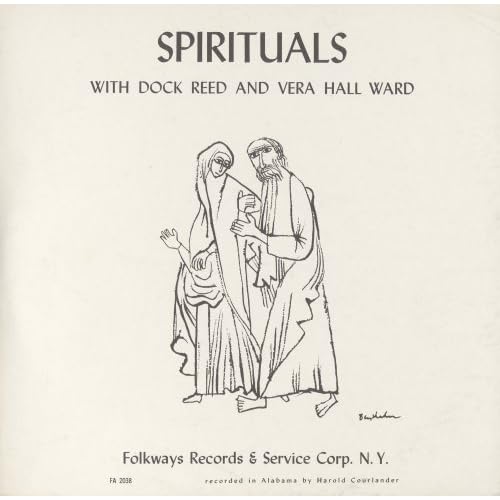Vera Hall is sampled here in Santic's version of Troubled so Hard. I think this is another example of the influence of gospel blues music on other forms of music. Many who are not familiar with the orgins of modern forms of music do not understand the debt that is owed to those who came before.
As an example of this, you can find many covers of Troubled so Hard on YouTube, but almost none of them mention MS. Hall or her contribution.
I also wrote a post about Moby's sample of Ms. Hall here >>>I Feel Like Going To Church - Natural Blues
Notes from YouTube;
Vera Hall - Trouble So HardThe below video is nice because it offers some pictures of Ms. Hall and allows you to put a face with the beautiful voice. I also like the raw nature of the sound, it reminds me of the hyms that my grandmother and great Aunts would hum and sing as they went about their business of life.
Vera Hall (1902-1964) - Born in 1902 in Payneville, Alabama, just outside of Livingston in Sumter County, Vera Hall grew up to establish one of the most stunning bodies of American folk music on record.
Hall married Nash Riddle, a coal miner, in 1917 and gave birth to their daughter, Minnie Ada. Riddle was killed in 1920. Though Hall sang her entire life, learning spirituals such as I Got the Home in the Rock and When Im Standing Wondering, Lord, Show Me the Way from her mother, Agnes, and her father, Efron Zully Hall, it was not until the late 1930s that Halls singing gained national exposure.
John Avery Lomax, ethnomusicologist, met Hall in the 1930s and recorded her for the Library of Congress. Lomax wrote that she had the loveliest voice [he] had ever recorded. The British Broadcasting System played Halls recording of Another Man Done Gone in 1943 as a sampling of American folk music. The Library of Congress played the song the same year in commemoration of the 75th Anniversary of the Emancipation Proclamation. In 1945, Hall recorded with Byron Arnold. In 1984, the recordings were released as a Collection of Folksongs entitled Cornbread Crumbled in Gravy.
In 1948, with the help of Alan Lomax, Hall traveled to New York and performed on May 15 at the American Music Festival at Columbia University. During the course of this trip, Lomax interviewed Hall on several occasions. In 1959, these interviews would be transformed into Rainbow Sign, a thinly- guised biography of Hall. In this book, Lomax stated, her singing is like a deep-voiced shepherds flute, mellow and pure in tone, yet always with hints of the lips and the pleasure-loving flesh... The sound comes from deep within her when she sings, from a source of gold and light, otherwise hidden, and falls directly upon your ear like sunlight. It is a liquid, full contralto, rich in low overtones; but it can leap directly into falsetto and play there as effortlessly as a bird in the wind.
Today, her work still garners attention. In 1999, techno-artist, Moby (Richard Melville Hall), included her voice and song Troubled So Hard in his multi-platinum album Play, thus introducing Halls voice to a whole new generation of listeners. Prized by scholars and folksong enthusiasts, Halls recordings include examples of early blues and folk songs that are found nowhere else. Her masterful renditions of traditional songs and stories are a defining part of Southern Black culture and the Black Belt region.
Spirituals

please click image
The above album is Alabama farm worker Dock Reed and his cousin Vera Hall Ward. Both were both recorded by Alan Lomax for the Library of Congress. Dock, by all accounts, was a deeply religious man who never sang secular music, while Vera was known to perform a few of these "sinful" songs. Please click on the image and listen to the samples mp3s of this wonderful gospel blues album.















No comments:
Post a Comment